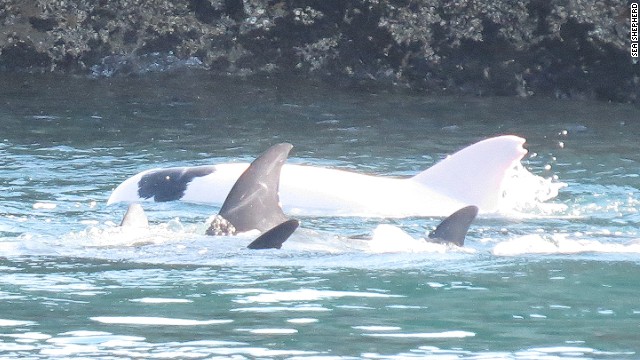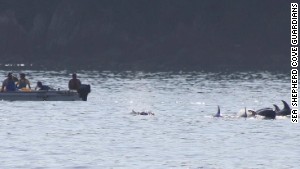Japanese hunters capture rare albino dolphin
November 27, 2014 -- Updated 0800 GMT (1600 HKT)
 |
| A rare albino dolphin is herded into a small cove by hunters before being captured. |
The albino dolphin
currently sits in a small holding pen where it is being trained to eat
dead fish and adapt to human interaction, said members of the Sea
Shepherd conservationist group, which monitors dolphin hunts in the
region.
They speculate the rare dolphin will be sold for up to $500,000 to be displayed in captivity.
The controversial hunt
takes place annually between September and March in Taiji, Japan. Most
dolphins are killed for their meat, while some are sold live to
aquariums around the world.
Locals defend the hunt, a long-held tradition, as no different than slaughtering any other animal for meat.
.
 Dolphin hunting season begins in Japan
Dolphin hunting season begins in Japan
.
 Debating Japan's dolphin slaughter
Debating Japan's dolphin slaughter
.
But activists say the hunt is driven by greed.
"This brutal hunt is
carnage carried out in the name of profit, not culture," said Melissa
Sehgal, a Sea Shepherd campaign coordinator. "These dolphins do not
belong to Japan; they belong to the ocean."
The group says that 15
pods of dolphins have been slaughtered in the cove since this year's
hunting season began, with approximately 170 dolphins killed.
The Taiji Town Office declined CNN's request for comment on Sea Shepherd's newest report.

No comments:
Post a Comment